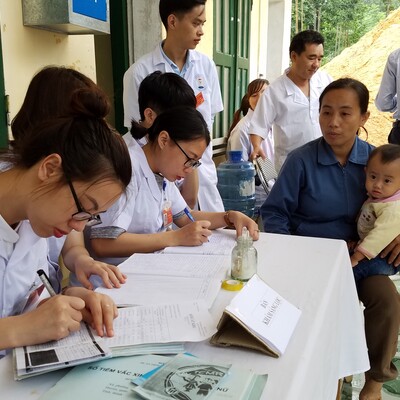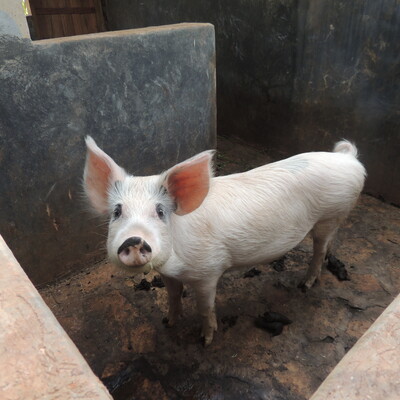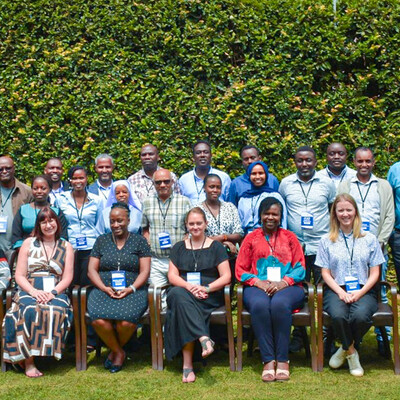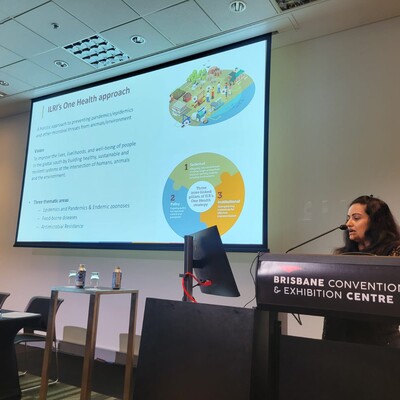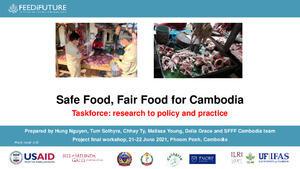
Painting the future of One Health in Ugandan schools
Three hundred primary and secondary school students aged 12–18 years in the western Uganda district of Bunyangabu have been mentored and commissioned as One Health ambassadors. They will promote awareness of issues that can be addressed through the One Health approach, and influence attitudes and practices in their communities.
‘One World - Social Coexistence’ is a school program implemented under Makerere University, the Capacitating One Health in Eastern and Southern Africa (COHESA) project Uganda country partner. It conducts activities for school-going children on the adoption of a One Health approach. This was done in collaboration with the Young and Older Persons Integrated Development Program in Africa (YOLIDA), an indigenous non-governmental not-for-profit organization.
Conducted in two primary schools and one secondary school, the three months’ program provided learners with a platform to engage with One Health mentors—teachers trained to serve as One Health mindset change agents and to mentor and guide the One Health clubs. The learners also share their perceptions and propose solutions to human, animal and environmental health challenges through visual art. One Health gardens to promote nutrition and environmental health were set up and will be managed by One Health club members at the respective schools.
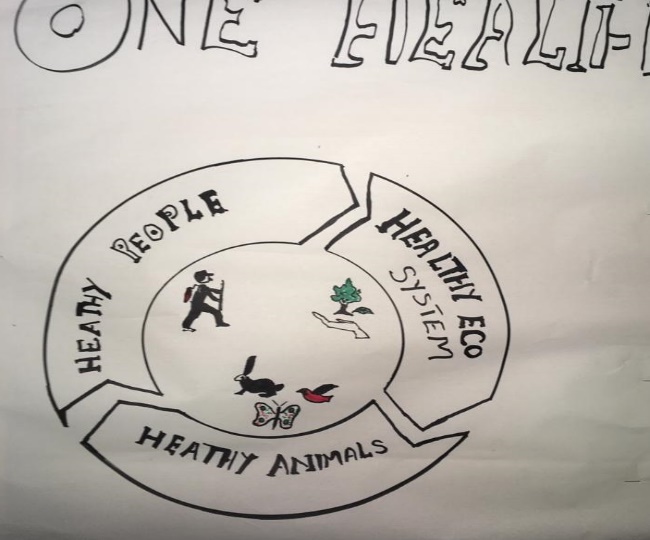
Alongside the school program, a community youth group was trained to convey One Health messages to the community through the arts in the local dialect. Topics addressed included emerging infections such as zoonoses, climate change, the role of human activities in biodiversity loss, and the interplays therein.
Emerging infectious diseases, long-term changes in climate, short-term fluctuations in the weather and increased biodiversity losses pose a threat to human, animal and environmental health. Addressing these threats requires a cross-sectoral, system-wide One Health approach, which recognizes the interconnection of people, animals, plants and their shared environment. Through COHESA, activities are being carried out in 12 countries to promote an inclusive research and innovation ecosystem to facilitate uptake, adaptation and adoption of solutions to issues that can be addressed by a One Health approach.
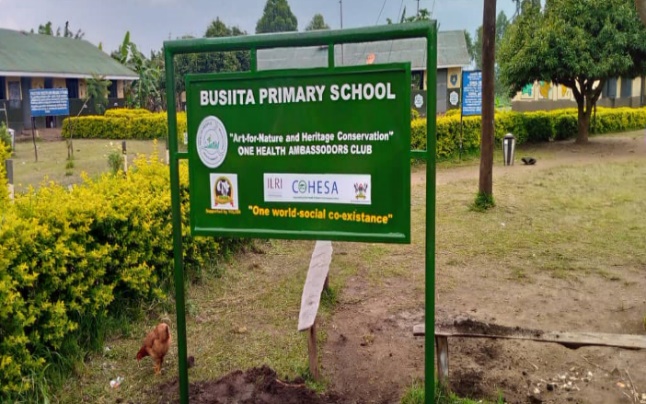
Why Bunyangabu
Bunyangabu District has a population of about 200,000 and is surrounded by four national parks (Kibale, Semliki, Queen Elizabeth and Rwenzori Mountains), teeming with a variety of fauna and flora. It is also home to over 20 crater lakes, some of which have communities living along their shores. The district is cosmopolitan, with some of the residents being the indigenous mountain dwellers. Another indigenous farming and hunting community was evicted from forests which were gazetted forest reserve. Most of the evicted people scattered into the neighbouring villages.
The proximity of the communities to the national parks makes human-wildlife conflict and consumption of illegal wild game common. The district is a hive of business activities, including cross-border trade with the Democratic Republic of Congo (DRC). It is a major transit route between the DRC, the neighbouring towns and along the main highway from Kampala, Uganda’s capital, located about 330 km away. Trade is boosted by four major markets in the district, where a variety of agricultural produce, fish and livestock are traded. Its proximity to the DRC exposes Bunyangabu to the political and social unrest in that country, including epidemic outbreaks like Ebola and Marburg disease.
Clovice Kankya, the COHESA lead partner in Uganda and head of biosecurity, ecosystems and veterinary public health at Makerere University’s College of Veterinary Medicine, Animal Resources and Biosecurity (COVAB) says:
‘The intersection of human, animal and environmental activities and the challenges in Bunyangabu provide a great opportunity for school children and communities to learn about the One Health approach and how it can be adopted to prevent and address some on the challenges in the community.’
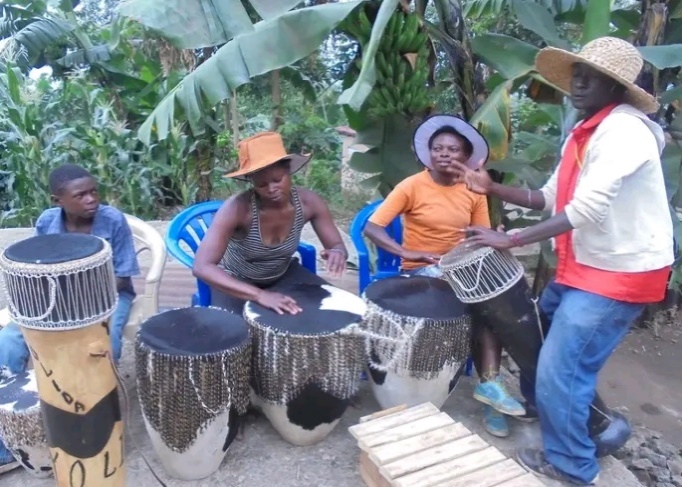
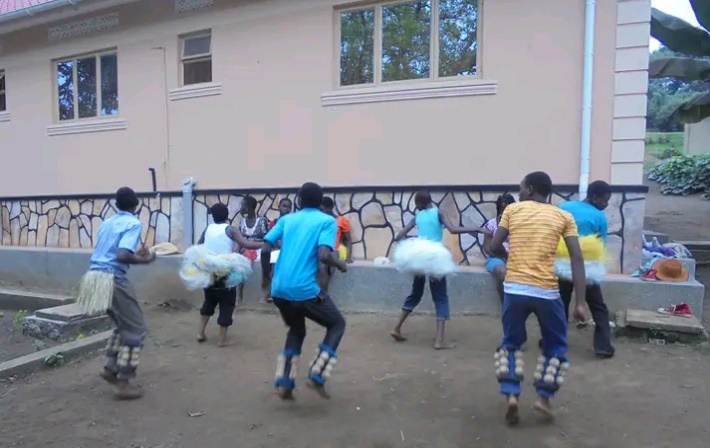
But more student engagement is needed. Out of 134 primary and 25 secondary schools in Bunyangabu District, only two primary and one secondary school participated in the program. According to the United Nations Children's Fund (UNICEF), 44 per cent of Uganda’s citizens are under 14 years of age. This makes children a key target group for mindset change campaigns that aim to impact future practices.
The future
Exchange visits will be organized between the pioneer schools and later with other schools that did not participate in the program. Depending on availability of funds, the school program will be scaled to include more schools and activities, including small animal husbandry. The youth drama group’s performances will be recorded and used to promote the One Health concept in the communities on a regular basis.
The COHESA project is co-funded by the OACPS Research and Innovation Programme, a programme implemented by the Organization of African, Caribbean and Pacific states (OACPS) with the financial support of the European Union.






